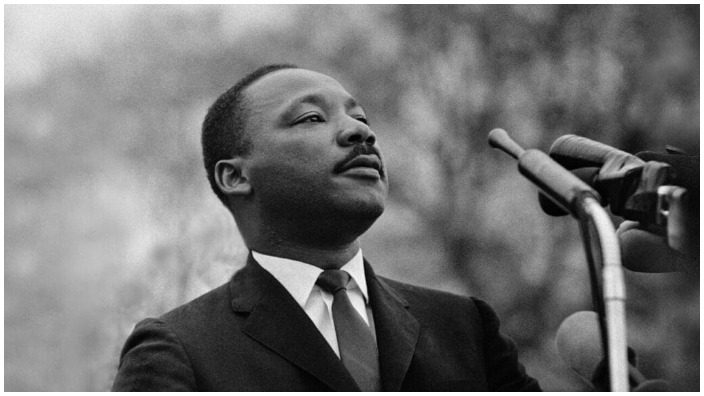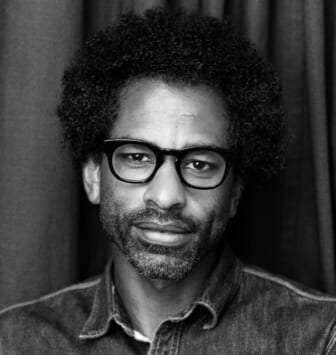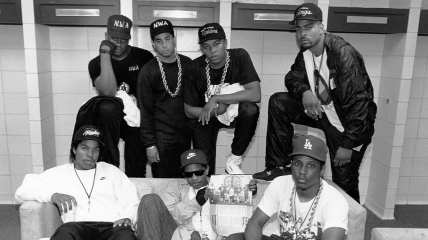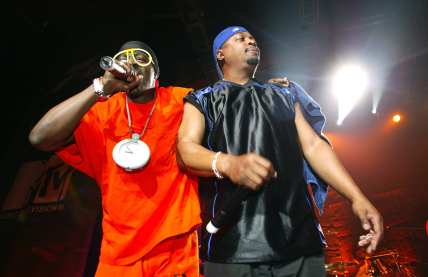‘Being Black: The ’80s’: How Stevie Wonder wrote ‘Happy Birthday’ to help create MLK Day
OPINION: The fifth episode of "Being Black: The '80s" dives into Stevie Wonder's Happy Birthday and the real Martin Luther King Jr.

Editor’s note: The following article is an op-ed, and the views expressed are the author’s own. Read more opinions on theGrio.
At every self-respecting Black birthday party, you sing “Happy Birthday” in the Black way. The Stevie Wonder way. The one with some rhythm. But many people don’t realize the origin of Stevie Wonder’s “Happy Birthday.” Wonder wrote a song meant to promote the idea of making Dr. Martin Luther King Jr.’s birthday a national holiday. The song is an ode to King. His widow, Coretta Scott King, asked Wonder to write it because she wanted help with her years-long campaign to create a national holiday honoring her late husband. That campaign took a lot of work because when King was assassinated, he was not popular with white Americans. The story of how the King holiday came into being is at the heart of episode five of “Being Black: The ’80s,” Stevie Wonder x MLK.
In 1966, King’s Gallup disapproval rating was 62%. Lots of white Americans disliked him. It took years of careful political diplomacy and image-shaping by Coretta Scott King to position King in a way that would let him be a candidate for a national holiday. The King that we celebrate each year is a beacon of peace and post-racial thinking. That’s the King of judging people solely by the content of their character. You know, the only King quote that most white people know or use.
King was also about reparations. He was also about attacking the American capitalist system. He was deeply pro-Black. And he was staunchly anti-war at a time when that was a controversial position. The real King is much more nuanced, much more Blackcentric and much more of a servant of Black political and economic needs than the milquetoast King we celebrate on his holiday.
That other side of King is echoed in another song about King that I discuss in this episode of “Being Black.” See, the adoption of the King holiday wasn’t immediate or universal. It came in more like a wave that didn’t hit everywhere. Arizona was a longtime holdout — their voters refused to allow the King holiday. That elicited the anger of Black America, which was distilled into a powerful song by Public Enemy, “By The Time I Get To Arizona.”
This was an incendiary anthem about King and the racist resistance to his holiday. If Wonder’s song was a bright welcome into the conversation about a King holiday then Public Enemy’s song was an aggressive conversation-ender. PE shot a cinematic video where they kidnap or attack various fictional political leaders from Arizona. In the final moment, Chuck D pushes a button and the car carrying the fictional governor explodes. A revenge fantasy that MTV shelved soon after. But this, to me, feels like the other side of King, who was stronger and tougher than often given credit for. And it feels like the other side of the Black liberation movement — this was the sentiment of the Black Panthers and Malcolm X — a more aggressive, less Gandhi-ish, more forceful demand for freedom mixed with a disgust of white supremacy and a load of impatience.
Part of what the King holiday does is it gives Black people a model to look at: This is how you should protest. Be like the nice, forgiving King who seemed like he wanted to forget all about race and focus on the content of our blah, blah, blah. But we all know there’s another side of King, and we celebrate that King, too. I get into all of that and more on this episode of “Being Black: The ’80s.”

Touré is a host and Creative Director at theGrio. He is the host of the docuseries podcast “Being Black: The ’80s.” He is also the host of the podcast “Toure Show” and the podcast docuseries “Who Was Prince?” He is the author of eight books including the Prince biography Nothing Compares 2 U and the ebook The Ivy League Counterfeiter.
TheGrio is FREE on your TV via Apple TV, Amazon Fire, Roku, and Android TV. Please download theGrio mobile apps today!


